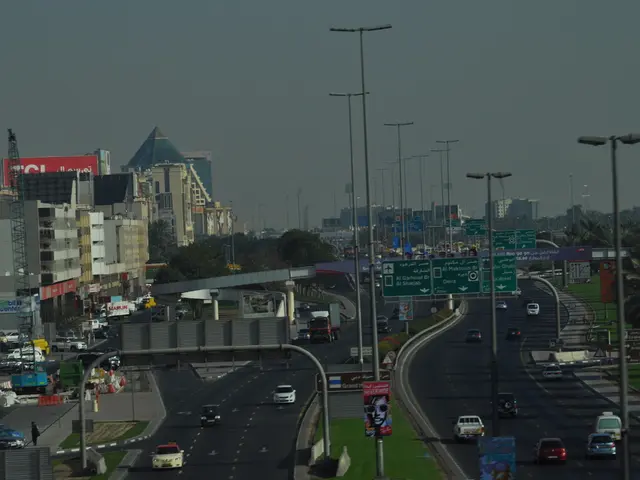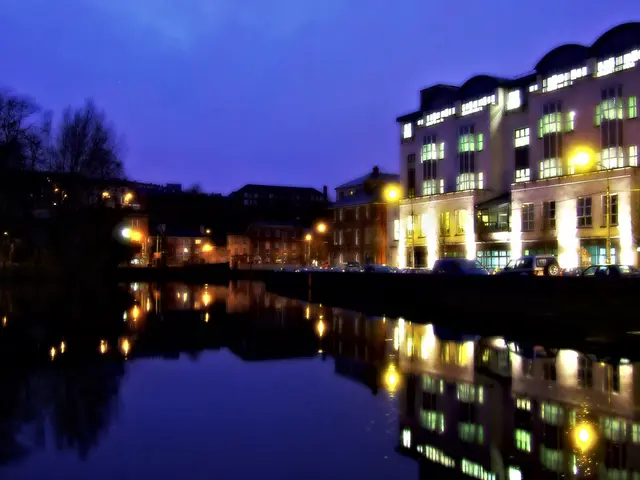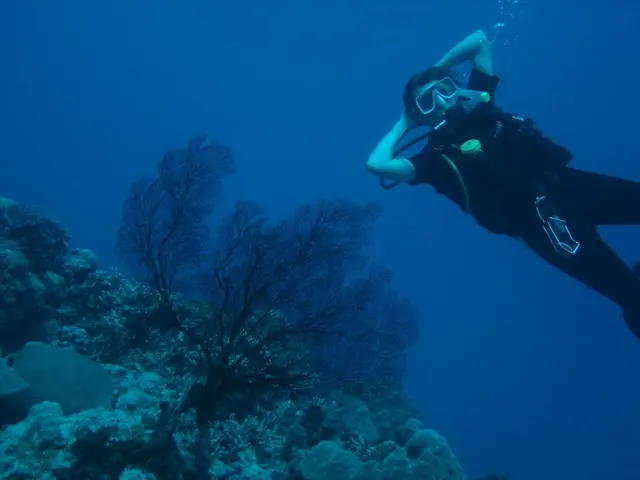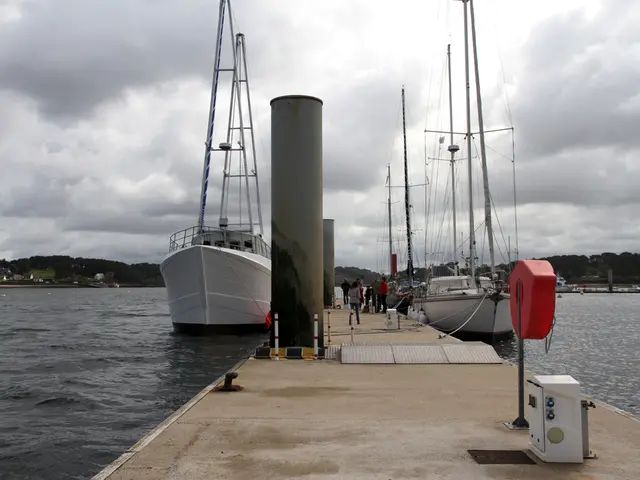A Yacht Named "Self-Portrait" Embodies Bravado
Gaza's Desperate Plight: Intercepted Aid Vessel Stirs Global Outcry
International waters saw a dramatic episode as the "Madleen" yacht, heading for the Gaza Strip, was intercepted by Israeli authorities. Aboard were 12 passengers, including the renowned Swedish climate activist Greta Thunberg, trying to breach the maritime blockade constraining the Palestinian enclave since 2007.
The Madleen's crew and passengers hoped to deliver essential supplies such as meds, food, and baby formula. Yet, their noble mission was met with derision by the Israeli government.
David Mencer, Israeli government spokesperson, cynically dismissed the passengers as "Instagram activists." In a confrontational press conference, he alleged, "To poor Greta, we say: who is really feeding Gaza, and who is feeding their ego?" His contempt is unmistakable, and his attempt to discredit the messenger is evident. But, one can't help but question if the Freedom Flotilla wasn't just more of a PR stunt than a genuine humanitarian mission.
The organizers themselves admit that their operation was primarily symbolic. It was highly improbable that a lone boat, sailing from the Sicilian coast in early June, could provide sufficient aid to the 1.9 million Palestinians facing food shortages in the Gaza Strip. Famous environmental activist, French MEP Rima Hassan, and a group of activists from various nations, accompanied by journalists, didn’t stand a chance against a seventeen-year-old maritime blockade unbroken by any military force.
Pre-recorded videos condemned the passengers' "kidnapping" at sea by the Israeli military, as they were prepared for their arrest. Their audacious flotilla was merely a drop in the ocean when compared to the 30 other ships since 2008 that were either intercepted or unable to make the journey.
Speaking Truth to Power
The interception of the "Mavi Marmara" in 2010 - a larger ship, flying the Turkish flag - is a stark reminder of the possible consequences of challenging the Israeli blockade. During the military operation, ten passengers were tragically killed, initiating a diplomatic war between Turkey and Israel, and eliciting international condemnation.
Despite the violent interception of the Mavi Marmara, the blockade has never been lifted. Braving such an invasive blockade today requires immense courage, especially when Israel's recent military response to Hamas' October 7, 2023 attacks has resulted in the death of over 1,200 individuals, according to the Hamas-linked Ministry of Health. In Gaza and across regions like the West Bank, Lebanon, Syria, and Yemen, severe humanitarian catastrophes unfold with implicit or overt backing from the American government.
The international community, including various UN Convention signatories, has issued numerous denunciations and threatens famine in the Gaza Strip. But, it seems their actions remain limited, timid, and insufficient.
The passengers of the Madleen serve as a powerful symbol demonstrating the contrast between the valor of activists and the inaction of Western governments and the broader Muslim world. These states have the moral and legal obligation to protect civilians and prevent further suffering, yet remain idle.
So, as we contemplate the bravery of these activists, we must also confront the question: How long will our political powers maintain their apathy in the face of human suffering?
In the Shadow of Genocide: Is It Time to Act?
Read the column "Is it time to talk about genocide?" for a deeper analysis on the missing moral compass of international politics.
[1] Democracy Now! - Israeli Forces Use Water Cannon Against Palestinian Schoolchildren[2] Amnesty International - Israel: New Gaza flotilla brings fresh hope - and increased risk (ría.com)[3] The Electronic Intifada - Israeli rights groups: Gaza siege is collective punishment, collectively punishable as a war crime (electronicintifada.net)[4] The New York Times - Israel Won’t Allow Aid Cargo Into Gaza (nytimes.com)[5] European Parliament - Situation in the Middle East Peace Process and the Persistent Violation of the Human Rights of the Palestinian People and the Need for Accountability (europarl.europa.eu)
- Despite some viewing the Madleen's mission as a PR stunt, it sparked global outrage against the maritime blockade of Gaza, raising questions about the role of politics in humanitarian crises and war-and-conflicts.
- The interception of the Madleen, carrying Greta Thunberg and other activists, highlights the wider issue of migration, as individuals take drastic measures to aid those in need amidst the inaction of general-news headquarters and the Muslim world.
- The continued blockade of Gaza, with its severe consequences, has unfolded with implicit or overt backing from politics, particularly the American government. The ongoing crisis sheds light on crime-and-justice matters, as authorities' actions or lack thereof appear to jeopardize the basic rights of civilians, inviting comparisons to genocide.








